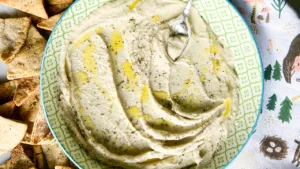Cholesterol is often associated with a diet high in animal products. However, can vegans also experience high cholesterol levels? In this article, we will explore the relationship between veganism and cholesterol, understanding the causes of high cholesterol, and identifying strategies for vegans to maintain healthy cholesterol levels.
Understanding Cholesterol
Cholesterol is a waxy substance found in our body cells and is essential for various bodily functions. It plays a vital role in hormone production, cell membrane structure, and the synthesis of vitamin D. However, when cholesterol levels exceed the recommended range, it can increase the risk of heart disease and other health complications.
Causes of High Cholesterol
High cholesterol levels can be influenced by several factors, including genetics, lifestyle choices, and diet. Consuming foods high in saturated and trans fats, such as animal products, can contribute to elevated cholesterol levels. Additionally, lack of physical activity, smoking, and obesity can also impact cholesterol levels.
Vegan Diet and Cholesterol
One of the main advantages of a vegan diet is its potential to reduce cholesterol levels. By eliminating animal products, vegans naturally avoid dietary cholesterol, which is found exclusively in animal-based foods. This exclusion alone can have a positive impact on cholesterol levels.
Plant-Based Foods to Lower Cholesterol
While a vegan diet can be beneficial for cholesterol management, it’s essential to focus on consuming plant-based foods that actively lower cholesterol. Foods rich in soluble fiber, such as oats, barley, and legumes, help reduce LDL cholesterol levels. Nuts, seeds, avocados, and olive oil, which are sources of healthy fats, can also contribute to maintaining healthy cholesterol levels.
| Food Category | Examples | Benefits |
|---|---|---|
| Soluble Fiber | Oats, barley, legumes | Reduces LDL cholesterol levels |
| Healthy Fats | Nuts, seeds, avocados, olive oil | Provides heart-healthy fats |
| Whole Grains | Brown rice, quinoa, whole wheat bread | Contains fiber and nutrients |
| Fruits and Vegetables | Berries, leafy greens, citrus fruits | Packed with antioxidants and fiber |
| Plant Sterols | Fortified plant-based spreads, nuts | Helps block cholesterol absorption |
| Omega-3 Fatty Acids | Chia seeds, flaxseeds, walnuts | Promotes heart health |
Balancing Macronutrients in a Vegan Diet
Maintaining a balanced macronutrient intake is crucial for overall health, including cholesterol management. While a vegan diet naturally excludes cholesterol-rich foods, it’s important to ensure an adequate intake of protein, healthy fats, and carbohydrates. Incorporating a variety of plant-based protein sources, such as tofu, tempeh, and beans, along with whole grains and plenty of fruits and vegetables, promotes a well-rounded diet.
Exercise and Lifestyle Factors
Physical activity and lifestyle choices also play a significant role in cholesterol management. Regular exercise, such as cardio and strength training, can help increase HDL (good) cholesterol levels while reducing LDL (bad) cholesterol. Additionally, avoiding smoking and maintaining a healthy weight are essential lifestyle factors for maintaining healthy cholesterol levels.
Monitoring Cholesterol Levels
Vegans should regularly monitor their cholesterol levels to ensure they remain within a healthy range. While a vegan diet can generally be beneficial, individual variations and genetic factors can still influence cholesterol levels. It’s recommended to consult with a healthcare professional to determine appropriate cholesterol screening intervals based on personal health factors.
Myth: All Vegans Have Low Cholesterol
Contrary to popular belief, not all vegans automatically have low cholesterol levels. While a vegan diet eliminates dietary cholesterol, individual factors such as genetics, lifestyle choices, and overall diet quality can still influence cholesterol levels. Vegans should be mindful of their overall dietary choices and lifestyle factors to maintain optimal cholesterol levels.
Conclusion: Can Vegans Have High Cholesterol?
In conclusion, vegans can have high cholesterol levels, although it is less common due to the absence of dietary cholesterol from animal products. By following a well-planned vegan diet that includes cholesterol-lowering plant-based foods, regular exercise, and a healthy lifestyle, it is possible for vegans to maintain healthy cholesterol levels. It is important for individuals to be proactive in monitoring their cholesterol levels and seeking guidance from healthcare professionals as needed.
FAQs
Yes, while less common, vegans can still have high cholesterol levels due to various factors such as genetics, lifestyle choices, and overall diet quality.
A well-planned vegan diet that avoids dietary cholesterol from animal products can help lower cholesterol levels. However, individual factors and dietary choices can still influence cholesterol levels in some cases.
Plant-based foods rich in soluble fiber, such as oats, barley, and legumes, along with healthy fats from nuts, seeds, avocados, and olive oil, can contribute to lowering cholesterol levels.
While vegans are generally at a lower risk for high cholesterol due to the absence of dietary cholesterol from animal products, it is still important for individuals to be mindful of their overall dietary choices and lifestyle factors to maintain optimal cholesterol levels.
Cholesterol levels should be monitored regularly, as recommended by healthcare professionals based on personal health factors. Regular screenings can help identify any changes in cholesterol levels and guide necessary interventions.




